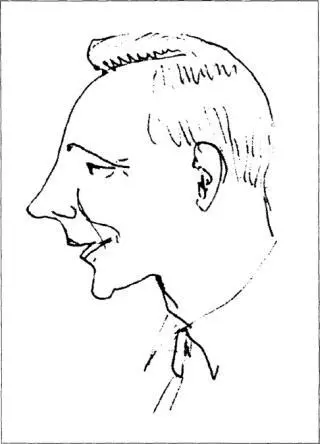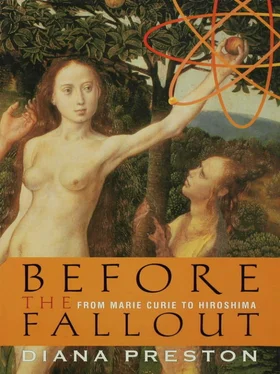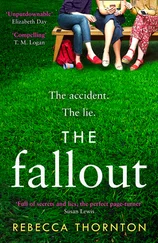The Chadwicks did not approach Wells. Instead, they hovered nervously about the hotel, afraid of missing a message about a ship or plane that might have room for them. At last they found places on a “stinking, rusty, tramp steamer” which carried them across the North Sea to England. Among those waiting anxiously to greet Chadwick in Liverpool was the impoverished, thirty-year-old Polish-Jewish physicist Joseph Rotblat.
• • •
As a child during the First World War, Joseph Rotblat had experienced and “witnessed great suffering” and he had become a scientist “as a way of bringing relief, of helping a lot of people.” While still in Warsaw, he had read of the discovery of uranium fission and, like Enrico Fermi, Leo Szilard, and Frederic Joliot-Curie, had conducted experiments showing that during fission more neutrons were emitted than absorbed—the conditions for a chain reaction. He had speculated about the potential for an explosive device, but the idea so terrified him that his “first reflex was to put the whole thing out of my mind, like a person trying to ignore the first symptom of a fatal disease in the hope that it will go away. But the fear gnaws all the same, and my fear was that someone would put the idea into practice.” His particular fear was that that “someone” would be the Germans: “I had no doubt that the Nazis would not hesitate to use any device, however inhumane, if it gave their doctrine world domination.”
However, Rotblat’s reason for coming to Liverpool had nothing to do with his fears about fission. He had “great hopes of building up nuclear science in Poland. I knew I needed a big machine, a cyclotron and Chadwick was building one.” Chadwick was indeed determinedly pursuing his construction of a cyclotron and was in close touch with Ernest Lawrence at Berkeley, his mentor and adviser. He was also in frequent contact with his old friend John Cockcroft, who, after Chadwick’s departure, had finally convinced Rutherford that the Cavendish must have a cyclotron. A massive donation from the car magnate Sir Herbert Austin had made it possible. Although construction of the Liverpool device was not proceeding as fast as he would have liked—the builders, Metropolitan-Vickers, had become flooded with defense contracts—by 1938 Chadwick had been able to tell the Royal Institution that the machines at Liverpool and Cambridge were nearly ready for use.
Rotblat had arrived a few months later, in the spring of 1939, supported by a small scholarship which was just enough to cover his expenses but insufficient for his wife to come too. Walking out of Lime Street Station and up the hill toward the university, he was shocked to see “the worst slums you can imagine.” It was “not very encouraging generally.” Also, his English was poor, “even with people who spoke the King’s English,” and the Liverpudlian accent defeated him completely. He found lodgings in a rambling house, full of postgraduate students, whose landlord skimped on the food and watered down the coffee. As he later wrote, he found a remarkable divergence between the England described in the novels of P. G. Wodehouse, which he read to improve his English, and the deprivation and drabness he saw around him in Liverpool.

Joseph Rotblat as sketched by Otto Frisch
Rotblat was also dismayed by the primitive conditions of the Liverpool University physics department, which was not the state-of-the-art facility he had anticipated. It was divided into two parts, the teaching side and the research side, which, though “they were co-habiting in the same building,” hardly spoke to each other. Rotblat was amazed when he visited the teaching lab “and discovered they had no a.c. [alternating current].” How, he wondered, “could you teach electricity” in such circumstances? It was “almost as though you ran a transportation firm and used a cart and horse.”
Bewildered, disappointed, and isolated by his lack of English, Rotblat nevertheless quickly settled in, helped by an amicable welcome from other members of the physics department. Chadwick was particularly welcoming, despite the fact that, as Rotblat quickly recognized, he was a shy man and “very much liked to be left to himself.” The first weekend after his arrival, Rotblat was asked to tea by the Chadwicks and was amazed to learn from other members of the department that he was the only one to be so honored during Chadwick’s four years at Liverpool. Rotblat was often invited to join the familv for weekends at their cottage in Wales and to go fishing with Chadwick. He got on well with Chadwick’s wife, Aileen, discovering a warmth where others merely found snobbery and chill class consciousness.
Chadwick set Rotblat to work on investigating a very short-lived isotope. The skill, speed, and originality with which the Pole completed the task so impressed him that he offered Rotblat the most prestigious fellowship his department had. It was worth £120—exactly the sum Rotblat received from his Polish scholarship—and had never before been awarded to a foreigner. A delighted Rotblat exclaimed, “Oh good, this means I shall be able to bring my wife.” Chadwick, unaware till now that his protege was married, was aghast at the idea of the couple existing on so little, but Rotblat insisted they would manage. In August 1939, shortly after the Liverpool cyclotron fired its first beam of accelerated particles, Rotblat returned to Warsaw. His thoughts were not only dominated by the chance to bring his wife to England. Like so many others, he had read the article published that summer by the German scientist Siegfried Flügge, which talked of a uranium device. As he pondered, his ideas crystallized, and he “worked out a rationale for doing research on the feasibility of the bomb.” He also concluded that “the only way to stop the Germans from using it against us would be if we too had the bomb and threatened to retaliate,” but his scenario “never envisaged that we should use it, not even against the Germans.”
Once in Warsaw, Rotblat sought out his former professor, Ludwig Wertenstein, who was Jewish like himself and had been a pupil of Marie Curie in Paris and had also spent a year at the Cavendish, where he had got to know Chadwick. Rotblat told Wertenstein of his conviction that “the only way to stop Hitler was to have the bomb ourselves” and asked his advice. The professor replied that “he couldn’t advise…. it was a matter of conscience”—a comment Rotblat took deeply to heart and would remember when he became closely involved with the Allied bomb project. [21] Despite Niels Bohr’s efforts to save him, Wertenstein would be killed by flying shrapnel as he tried to flee to Hungary across the Danube in 1944.
For the present, though, Rotblat’s chief worry was his wife. She had been taken ill with appendicitis and was too sick to travel. An anxious Rotblat waited until, in his own words, “the last minute,” but finally he left, intending that his wife would come later. As it turned out, he caught almost the last train to leave a free Poland for over fifty years. He reached England on 1 September 1939, the day that the Nazis marched into Poland. He never saw his wife again.
Back in Liverpool, he faced pressing financial problems. His Polish funding had dried up, his fellowship was not due to commence until October, and he had just seven shillings and sixpence in the world. He could not even pay his rent and hitchhiked to London to seek the help of the Polish Embassy, but “there was complete chaos and they asked me, could I help them.” However, his hitherto parsimonious landlord proved unexpectedly kind, agreeing he could stay on and pay him back later. Nevertheless, Rotblat was tremendously relieved when Chadwick returned safely to England and immediately threw him a lifeline, appointing him as lecturer in nuclear physics, despite what Rotblat called his “very, very shaky” English. Rotblat spent the next weeks studying English as hard as he could, not only to enable him to lecture but, as he later recalled, to allow him “to go back to the problem which worried me the whole time.” Rotblat decided to go to Chadwick and quietly suggest “that we should start work on the bomb.”
Читать дальше













